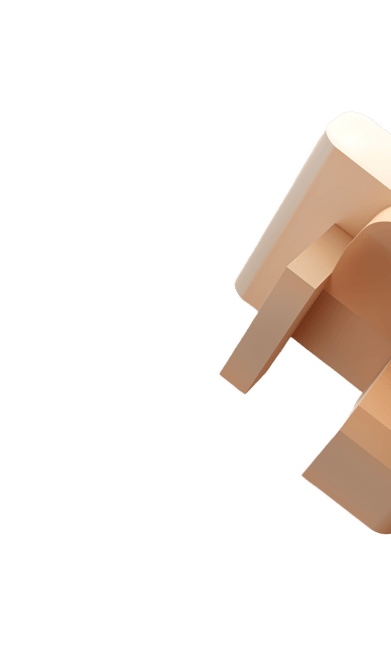7 steps to get approved for a first-time mortgage quick
You can never be certain that your mortgage application will be approved. This is part of the homeownership journey. However, there are lots of things you can do to mitigate this. Here are seven steps you must follow to improve your chances.
1. Be on the electoral roll
Make sure you’re registered to vote; also known as being on the electoral roll. You must be aged 16 or over (or 14 or over in Scotland and Wales).
You must also be one of the following:
a British citizen
an Irish or EU citizen living in the UK
a Commonwealth citizen who has permission to enter or stay in the UK, or who does not need permission
a citizen of another country living in Scotland or Wales who has permission to enter or stay in the UK, or who does not need permission
You can register to vote at gov.uk or by filling out a paper form, which you can also find on the government website.
2. Limit your spending
A lender may require your last three bank statements when deciding whether to lend to you. As such, ensure you’re watching your spending for at least 3 months before you apply for a mortgage. This means holding back on unnecessary luxuries.
3. Have the right documents
Your broker or lender may want to see the following documents, all with the correct dates.
How many bank statements do you need for a mortgage application?
You’ll likely need the last 3 months of your current account statements showing your income and outgoings.
If you��’re utilising online banking but don’t know how to download a bank statement, sign in to either the online banking website or app, first. Navigate to your statements and documents section, select the appropriate statement then tap the download button.
Each bank has detailed guides on how to download statements from their app or website. If you’re struggling, try searching in Google “how to download bank statement [insert bank name]”.
How many payslips do you need for a mortgage application?
You’ll need digital payslips for the last 3 months. Your employer should provide you with these.
If you’re self-employed, however, you’ll likely need the following:
2 to 3 years of accounts (if you’re a limited company)
2 years' HMRC tax calculations (SA302s) and tax year overviews (if you’re a sole trader or limited company)
A current and previous signed contract stating the day rate (if you’re a contractor). If you do not have one, you could use your personal tax return or company accounts
A record of regular work. If there’s a drop in income, the lender will want to know why
A good credit history (especially if you’re going with a high-street lender)
Read more on self-employed mortgages in our detailed guide.
ID
You’ll need a certified copy of either your passport or driving licence. Your lender or mortgage broker will let you know who can certify your copies. You can often get this done at the post office.
Make sure that your ID is still in date.
Address
You can use council tax bills, utility bills and bank statements as proof of your address. They must be dated within the last three months.
Proof of deposit
You’ll need a savings statement or a bank statement as proof of your deposit.
If your deposit is a gift, you’ll need to fill in a ‘Confirmation of Gifted Deposit’ form and provide 3 months of bank statements from the person gifting the deposit.
Other documents
There are a few more documents you might also be asked for.
These could include proof of:
Any additional income, such as bonuses, commission and overtime
The income you do not earn, such as maintenance, tax credits and child benefit
Evidence of right to reside, such as visas or residency cards
Some lenders might also ask you for 3 months' worth of business bank statements.
4. Know what you can afford
There’s no point applying for a mortgage that you cannot afford, so know what your limit is.
One of the best ways to do this is to get a Mortgage in Principle (MiP), also known as a Decision in Principle (DiP).
You can get a free Mortgage in Principle online from Better.co.uk.
5. Reduce your debt
When you apply for a mortgage, you’re asking to borrow a huge amount of money. As such, a lender will look at what you currently owe. If you have enough savings (apart from what you’ll need for your purchase) you might want to consider clearing your debt.
This will increase your chances of being able to borrow the maximum available to you.
6. Consider using a mortgage broker
It’s worth thinking about using a broker as they’ll recommend the best possible lender for your situation.
This is really important as different lenders suit different types of customers. You might be a perfect fit for one while another might turn down your application immediately.
Brokers will help you with all the paperwork that’s needed. Getting a mortgage with Trussle is free for most customers. But you may have to pay a fee depending on your circumstances and credit history. Speak to one of our mortgage advisers, and learn more about adverse customer fees here.
7. If you're self-employed, tell your accountant
If you’re self-employed, make sure to tell your accountant up to a year before you apply for a mortgage; if you can. This is so they have ample time to ensure your accounts are tax efficient and show your income to the best advantage.
What people are saying about Better.co.uk...
Get a mortgage with Better.co.uk today
Better.co.uk is a fee-free mortgage broker
4.8-star Trustpilot rating from over 9,000 reviews
Compare mortgage deals from over 100 lenders
Get matched with the right legal team with SmartBuyer
Fund a big expense with a Homeowner Loan

Important info & marketing claims
You may have to pay an early repayment charge to your existing lender if you remortgage. Your savings will depend on personal circumstances.
Your home may be repossessed if you do not keep up repayments on your mortgage.
*89% of customers will be better off using Better.co.uk rather than going direct with their lender. Read more on our marketing claims page.
We can't always guarantee we will be able to help you with your mortgage application depending on your credit history and circumstances.
Average mortgage decision and approval times are based on Better.co.uk's historic data for lenders we submit applications to.
Tracker rates are identified after comparing over 12,000 mortgage products from over 100 mortgage lenders.
As of January 2023, Better.co.uk has access to over 100 lenders. This number is subject to change.
For buy-to-let landlords, there's no guarantee that it will be possible to arrange continuous letting of a property, nor that rental income will be sufficient to meet the cost of the mortgage.

